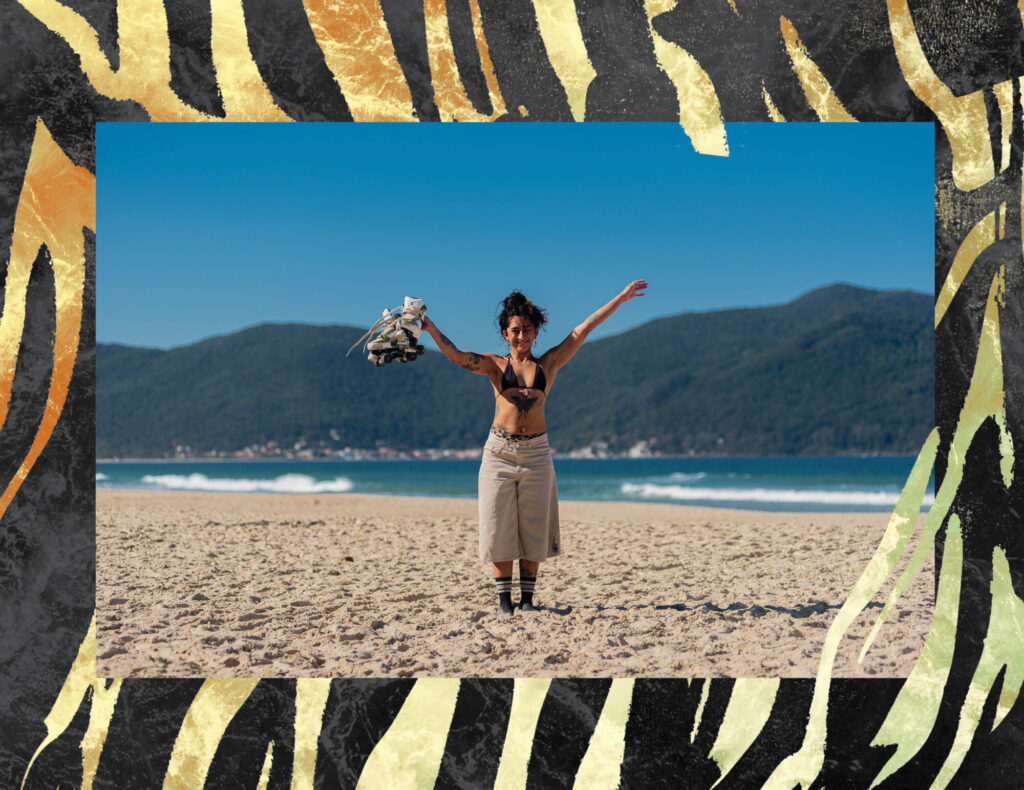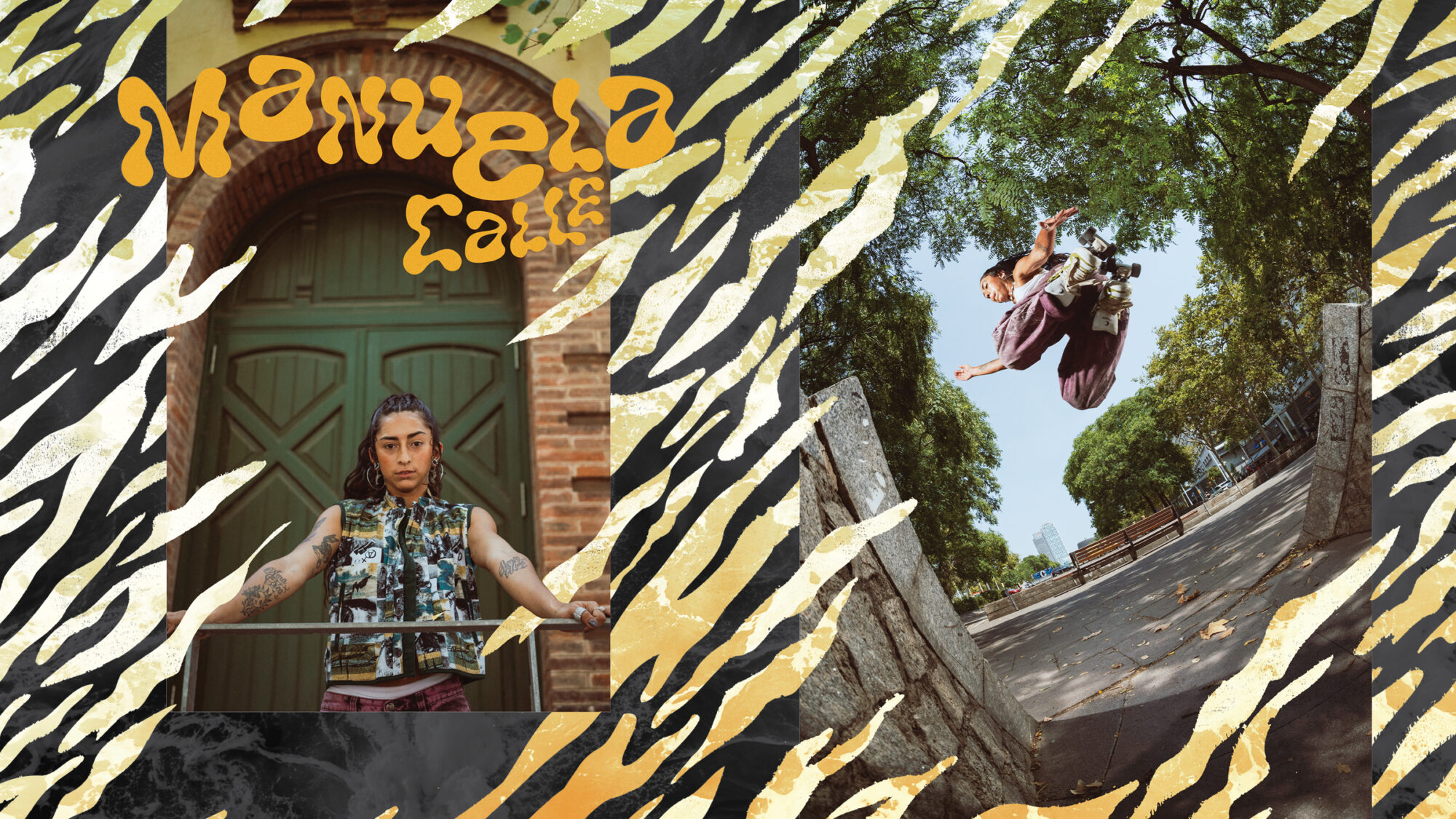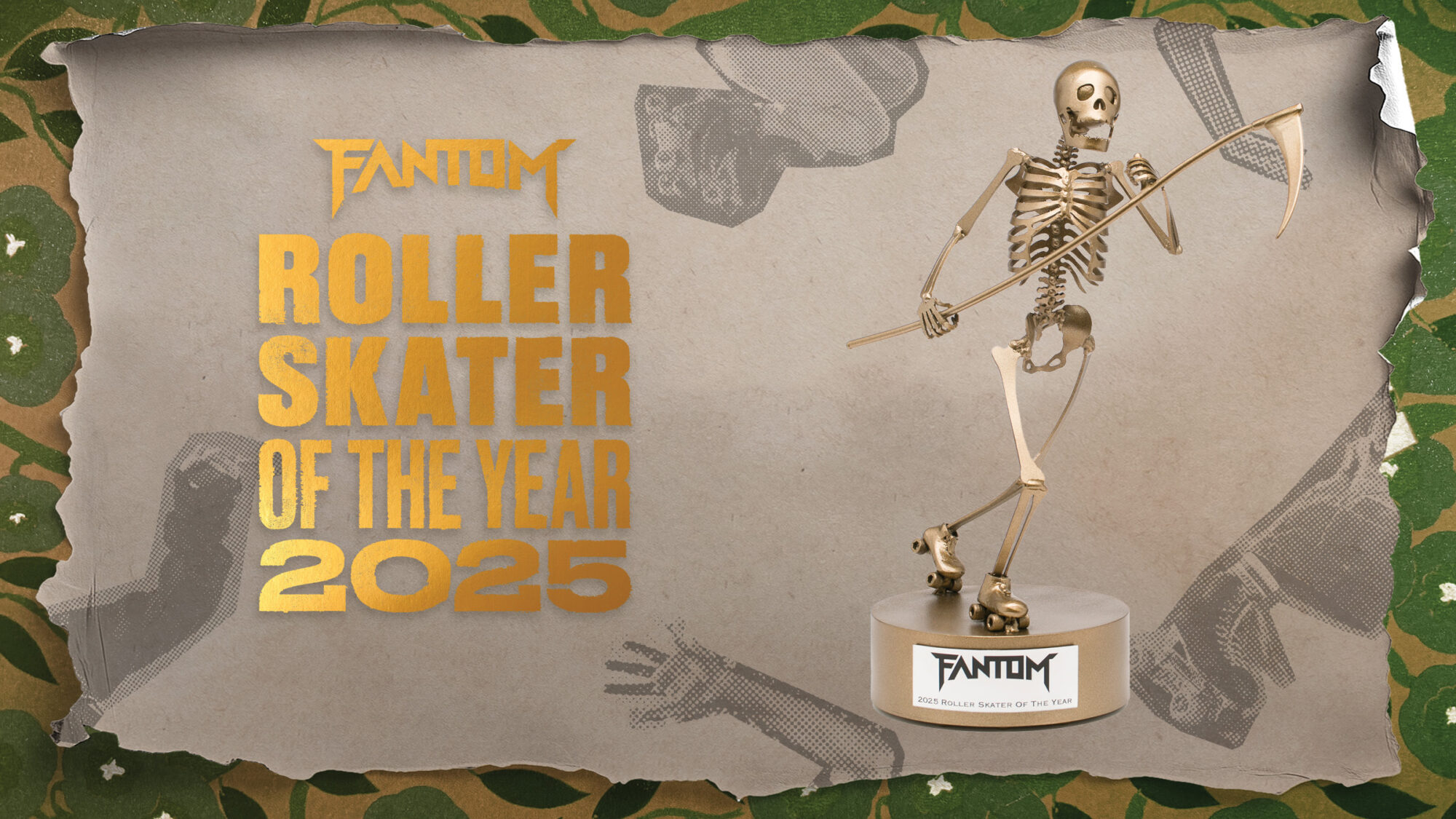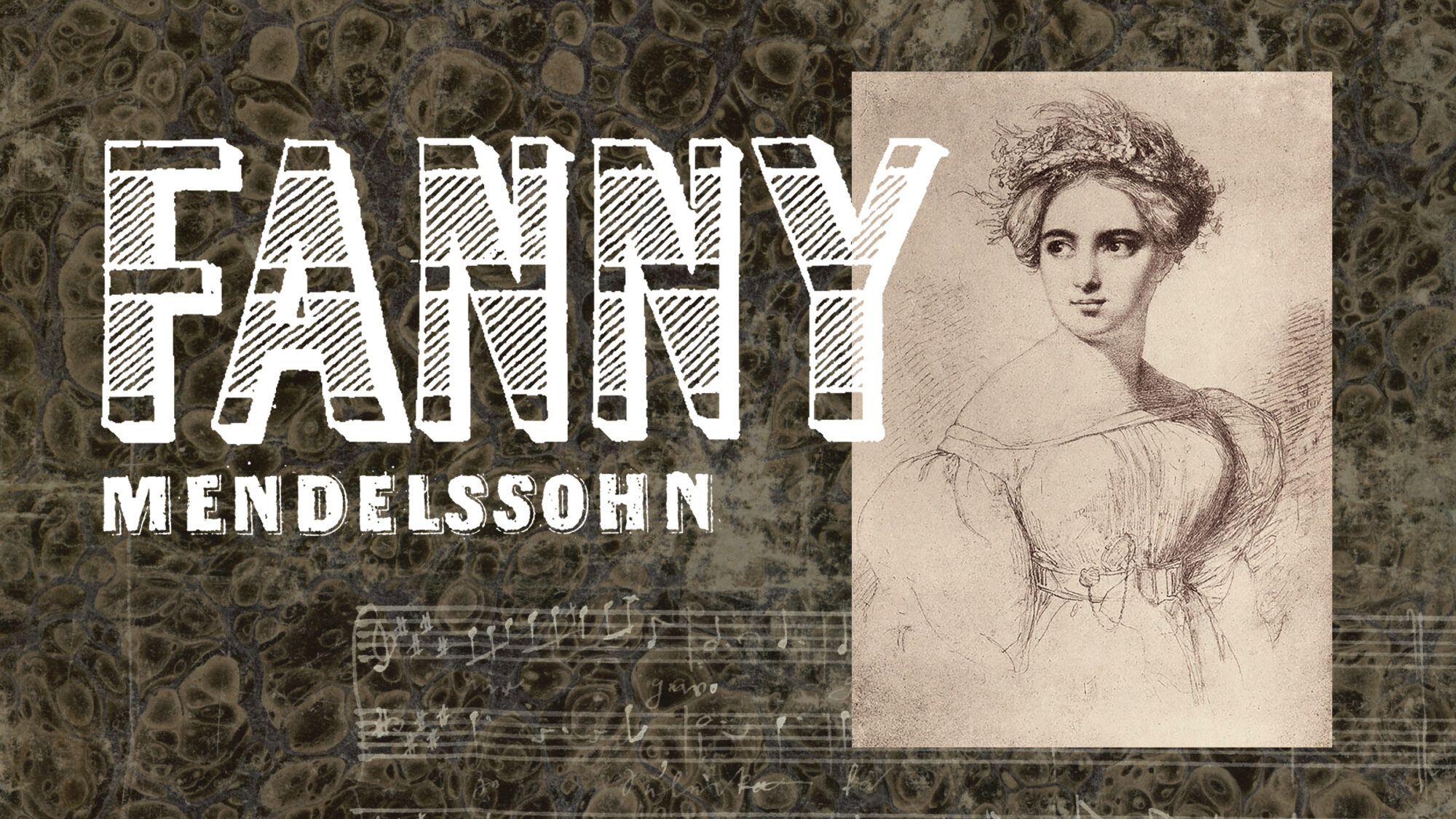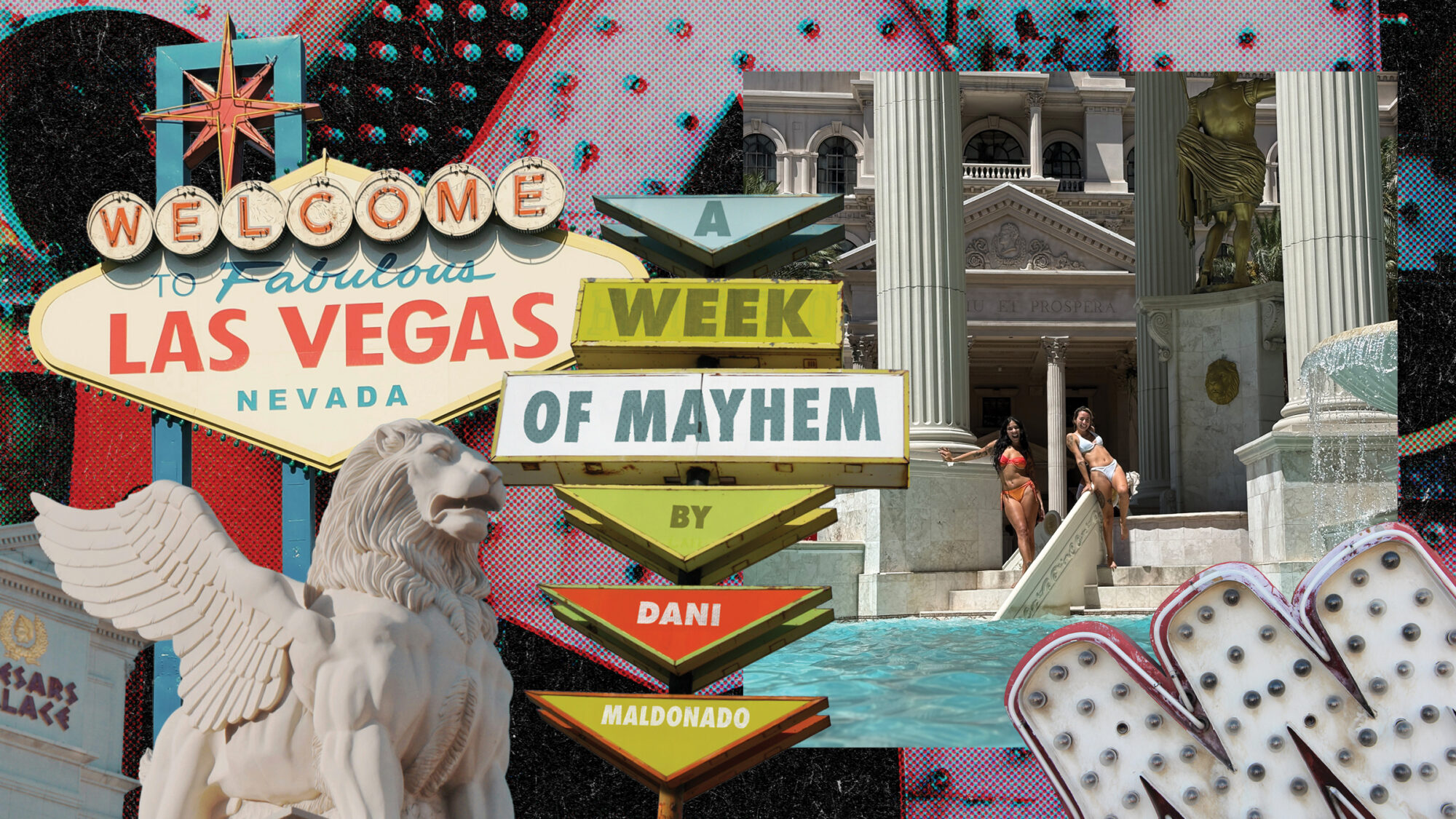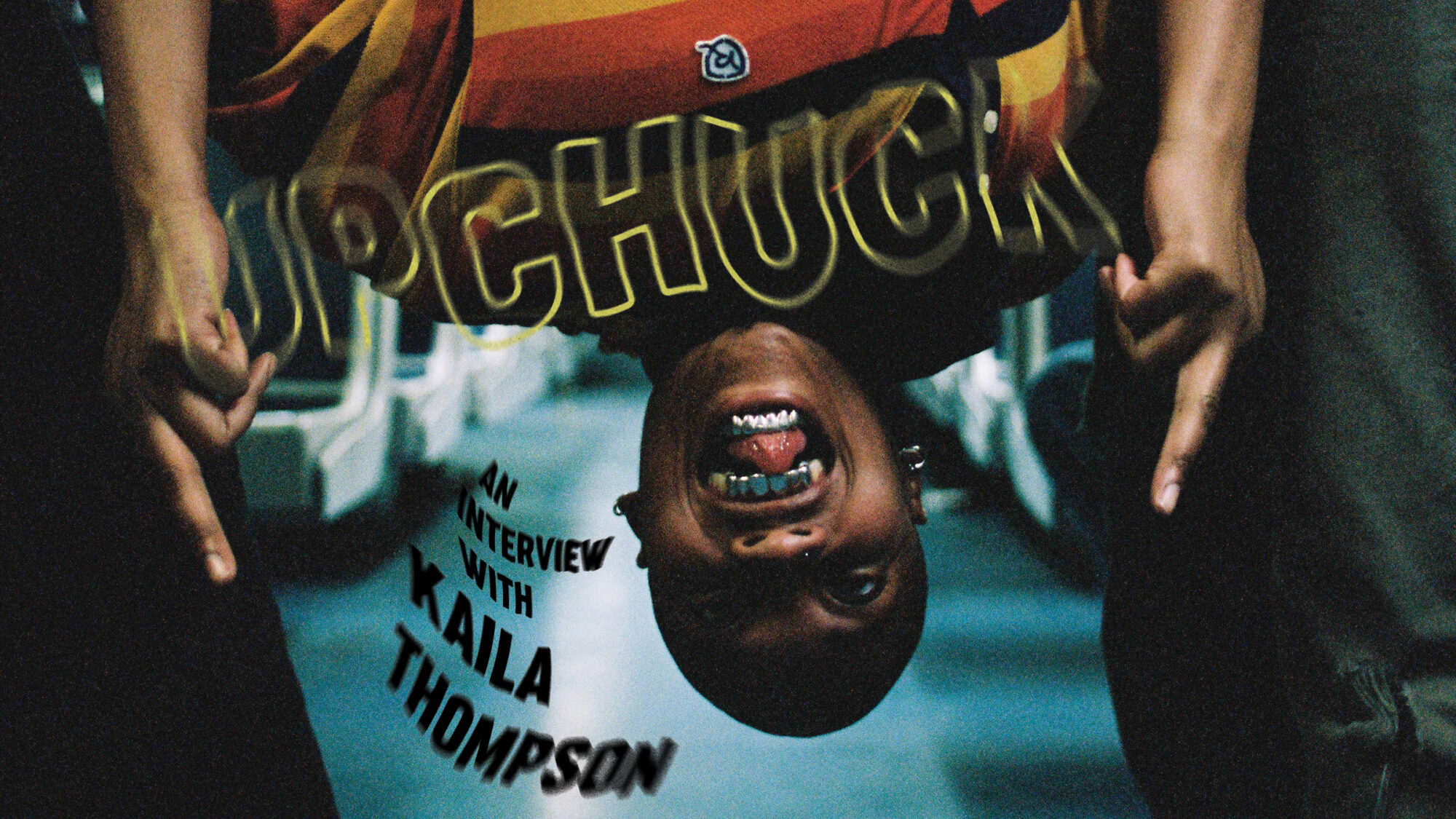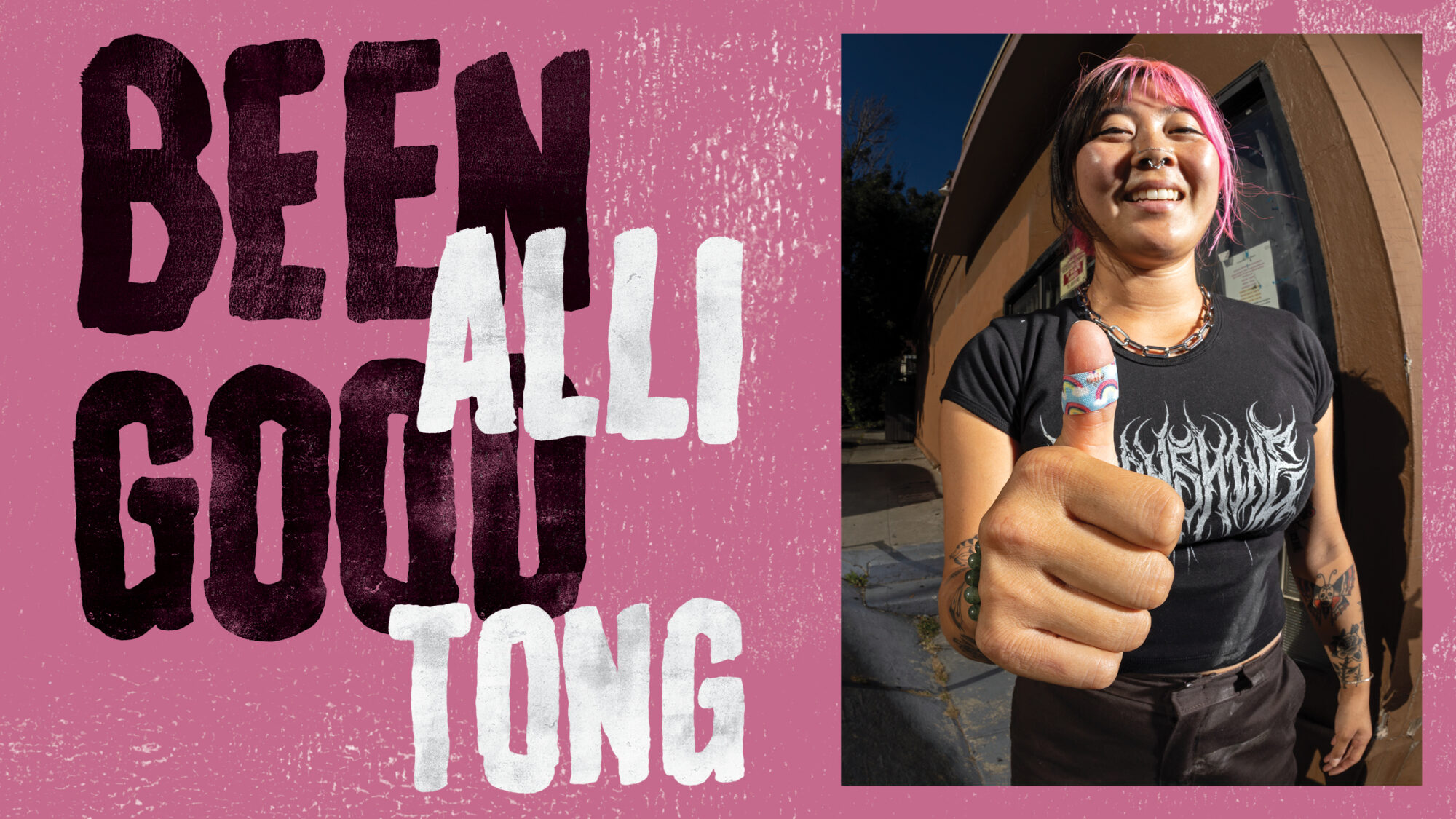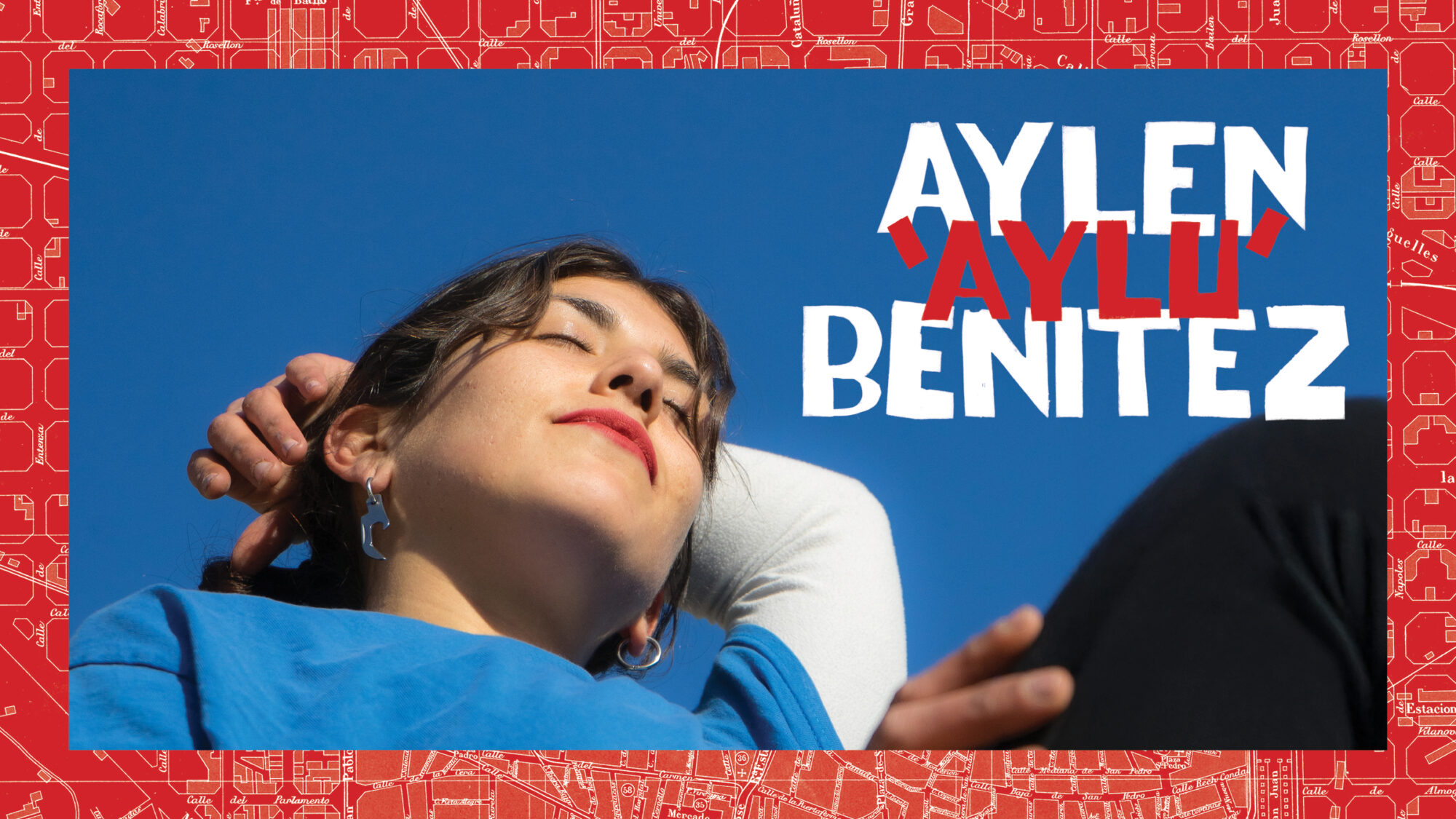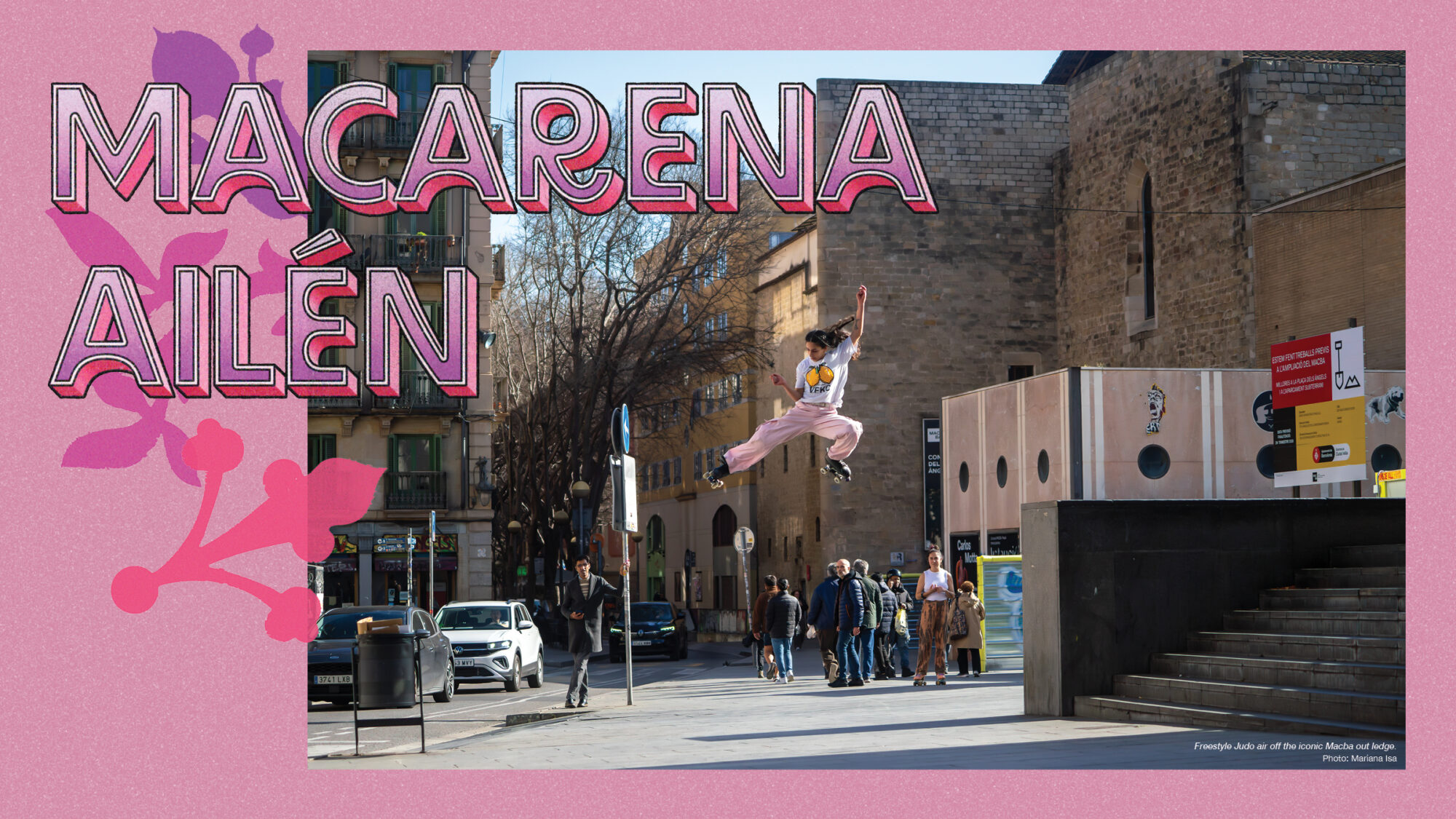Manuela Calle is a fierce roller skater from Manizales, Colombia. With raw grit and power, she pushes boundaries and inspires others. Her skating is a bold expression of courage, resilience, and the wild energy that drives her forward. More than just a skater, Manuela is a leader and community builder, using her passion to empower women and to bring skate culture to places that need it most. When I met her in Paris last year, I got to know a different side of her which makes her story even more powerful.
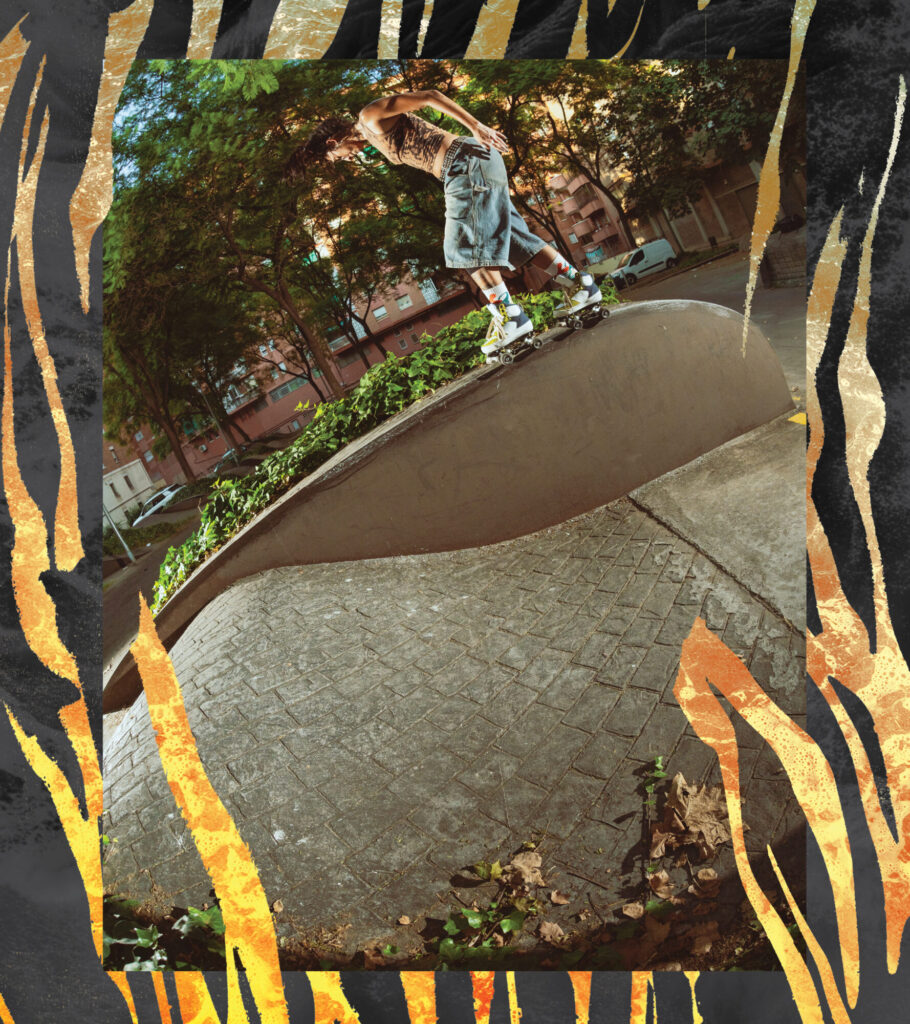
Photo: Roger Ferrero
Manuela, what does “Marea Revuelta” mean to you?
Marea is like the tide of the ocean, and Revuelta is like a revolt. That was my Instagram name before I even started skating. I took it from a song and that was something that I felt within me. A storm mixed with a lot of things, big and strong, but it’s also calm sometimes. And because I’ve always had a deep connection with the ocean since I was a child. It always represented my life and now it fits perfectly.
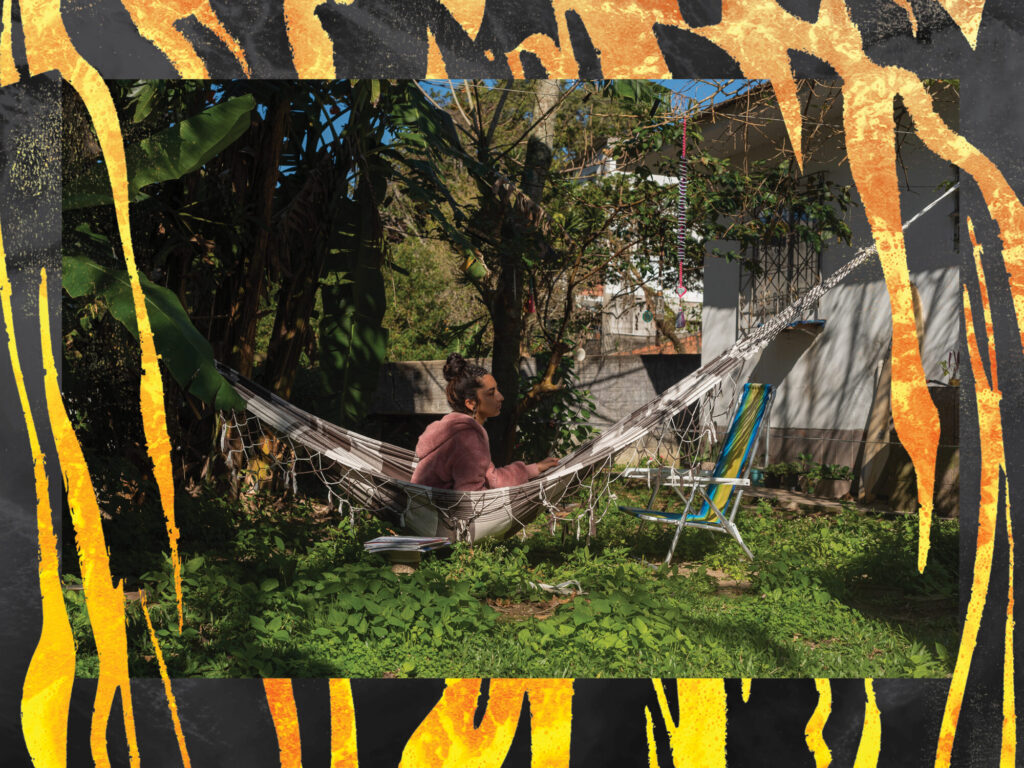
Your skating is so powerful, I wonder what your life was like before you started skating.
Before I started roller skating, I was starting my university as a biologist. Since I was a child, I was very curious about the outside world and I was born in a little town, you know? Growing up, I was surrounded by mountains, cows, horses, chickens, so I was very connected with nature. I came to the city when I was 12 to study, but I felt like the city is not my comfort zone. I was always curious about different things like nature, animals, people etc., and that’s why I studied biology because that was the way I could reunite all the things I like. Life in all its forms. To understand our environment and the interactions between humans, animals, and plants. I was also a very active person. I liked to walk, ride a bicycle and play sports, but I didn’t have something I was truly passionate about.
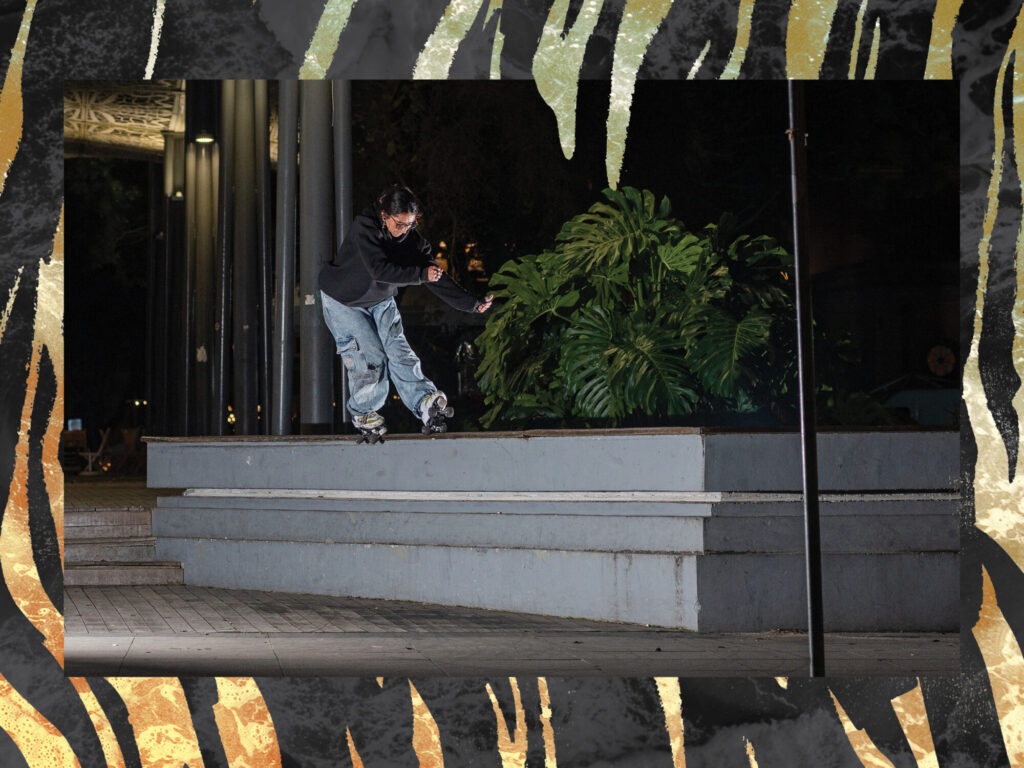
Photo: Alexsander Nicolau
So how did you start skating then?
When I moved to the city, I had a skater boyfriend. I used to hang out with him and watch him skate, and I think that was the first time that I got introduced to extreme sports. I knew I wanted to try something, but I wasn’t sure about what to take up. After some time, around 2016, I was scrolling on Facebook and I came across a Moxi video and they were like going around the streets doing crazy things. I was like, “This is what I want!” My mom had these old skates that she wore when she was 15 and she still had them at that point in time. She used to do downhill skating. Before I had this urge to quad skate, I used to rollerblade and I used to go skating with her to spots as a kid. I was always joking, telling her to upgrade to inline, but after I saw the Moxi video I was like, “Mom, can I borrow your skates?” And then I took them but they didn’t fit me. I had to replace the boot with a pair of my shoes without knowing anything about changing setups.
Did it actually work?
I went to this park two blocks away from home and I skated for 10 minutes and then it broke. I went back home and told my dad, “Yes, Dad, it worked but just for 10 minutes. Now I need it to just work for an hour more and it’s perfect.” Then I started trying other things, changing parts, etc.
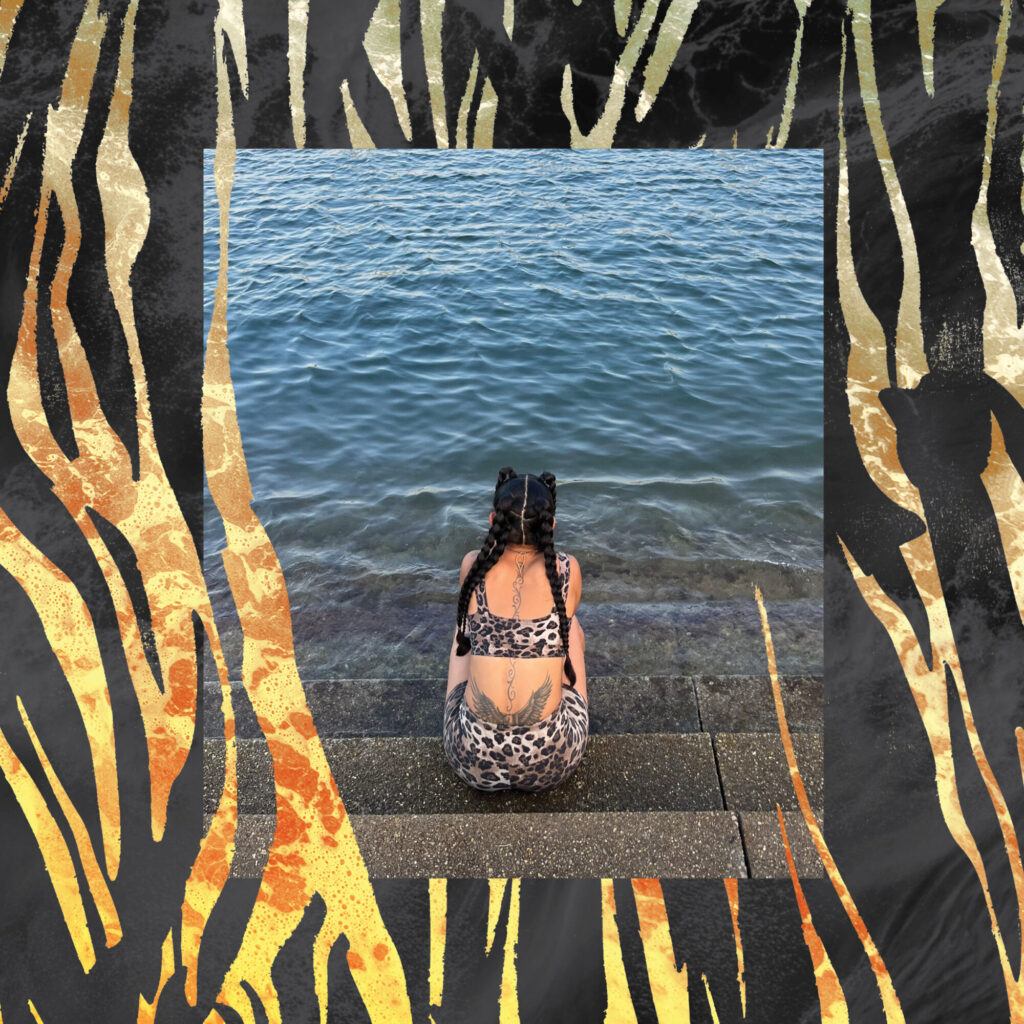
What were some of the biggest obstacles you faced early on?
When I started in 2016, as my city was small and I was not close to people in this culture, I used to skate alone, you know? By myself all the time. I didn’t know anyone who did the same thing. After a while, I got to know about another girl who then became my best friend and we always skated together. But I think it’s also a good thing because we started being very close to skateboarders, bikers, and bladers. Those were the people we had to share with, you know? And learn from. The other big issue was access to skates. I used to use very old skates that were not good, you know? I was skating with random shoes, no grind blocks, etc. We didn’t even know how to find other skaters on the internet to understand what to do next, so the access to information and products was a huge issue for us. In Colombia, we didn’t have skateshops at that time and everything was really expensive. When I finally had the opportunity to get good parts, like plates or wheels, it was two years after I started skating. We had to start skating with almost nothing, you know? And I’m always grateful for what we have actually. We didn’t have many skateparks or bowls so we used the streets to skate. Skating got me more connected to the city. When I just moved, I felt so lost, but when I started skating the streets, I started loving the city and the buildings and I feel more connected.
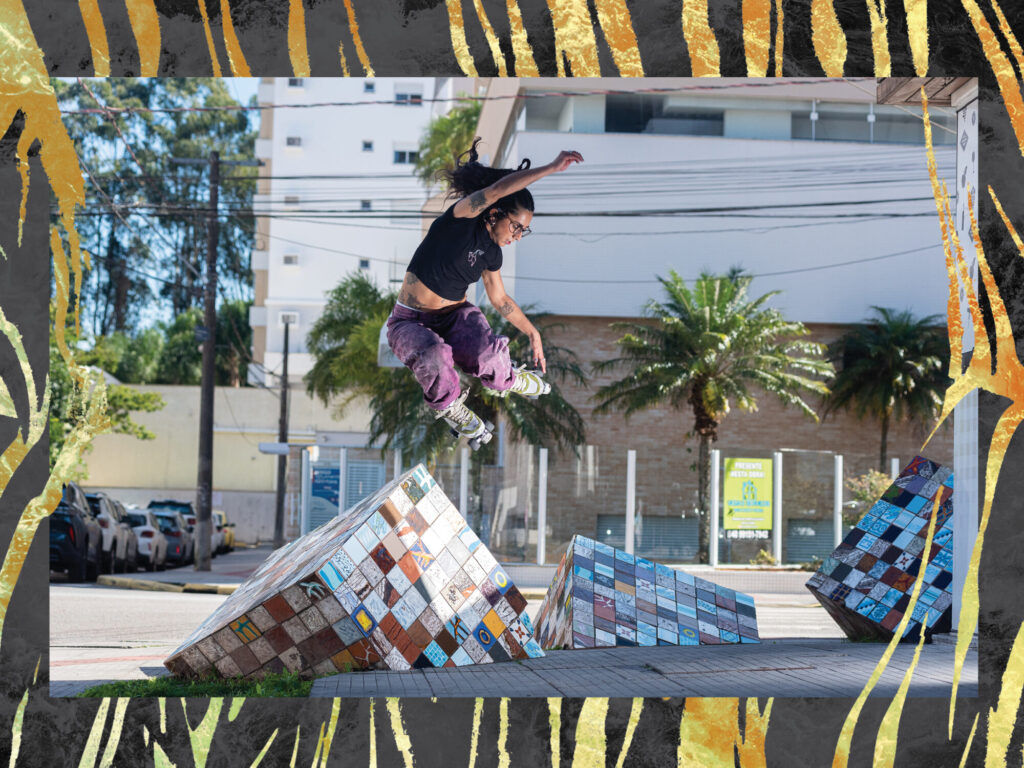
I totally relate—I feel like I’m still facing similar struggles here in India. But I think that makes us more grateful for the little things. When you really want something, there are no excuses. It also makes you appreciate traveling and meeting other skaters even more.
We have to be grateful. We have so many opportunities. The first time that I got a pair of roller skates from a brand I was so proud and I’ve always been really grateful about that. Since I started roller skating, I wanted to share this love with other people. In Colombia, we had these outlets that used to sell the old parts of skates, etc. so I used to go and find used wheels and parts to build our setup.
Was there ever a point you wanted to quit skating?
I’ve been skating for nine years now and I’ve never stopped. I’ve had many phases of my life and I think sometimes you feel demotivated, sometimes you’re hurt or skating alone can be really hard. I feel like roller skating was the very first thing in my life where I really found myself. Something that makes me feel alive, heals me, and helps me to get to know myself more. So, the times when I wasn’t skating because of these factors, I felt like something was missing. I needed to come back because that was the thing that gave me life and satisfied me. Feeling the motion, adrenaline, to feel myself overcoming the obstacles.
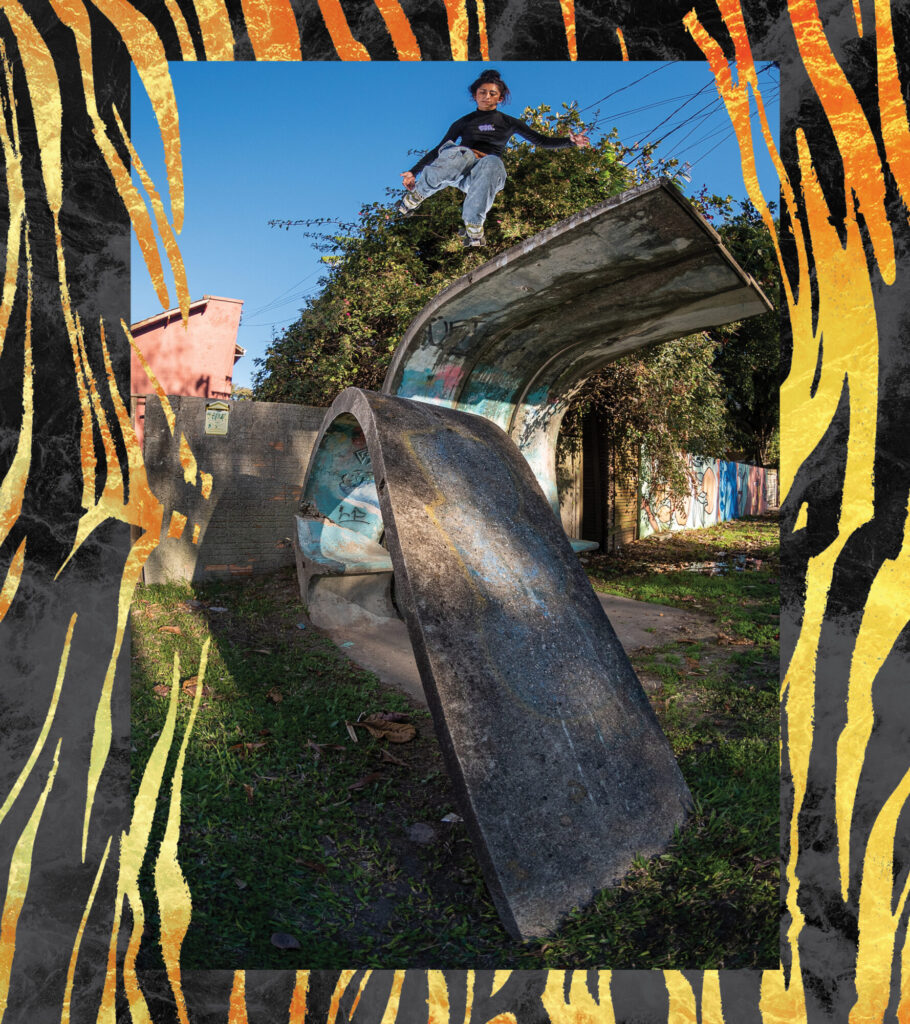
Photo: Alexsander Nicolau
Did it also help you get through personal struggles?
I had to deal with many things in life and roller skating was always there. Even when I was alone. When my arm was fractured, I went to the skatepark and skated just a little to feel good. It always helped me keep myself centered. It helped me through many difficulties. Whenever I felt anger, sadness or even when I didn’t feel like I could skate, I took my skates with me and sat around looking at people skating and I felt better. I’m shaking thinking about those days. I went through rough times when I was younger and now when I look back, I’m like, “Fuck! I overcame all of that!” And roller skating was the key that always kept me up, that never let me down.
What would you say is the best thing that skating has taught you about life?
Persisting. When you start, you’re worried about many things like not falling and the bad things. So, when you’re learning something new, you keep trying and trying and even when you’ve done it for so many years, you’re still falling and failing. What I learned was that falling was winning, because only after falling I could learn how to not fall and how to do what I want to do. I could put that in every day in my life with whatever I do. I had to try and I had to fall. I cannot refuse whatever I want to try, even if it’s a project or a dream, because then you’re failing yourself by not chasing what you want. So, I would try the same trick 500 times to get it one day. It’s always about trying and trying and that’s what life is like. You can never give up.
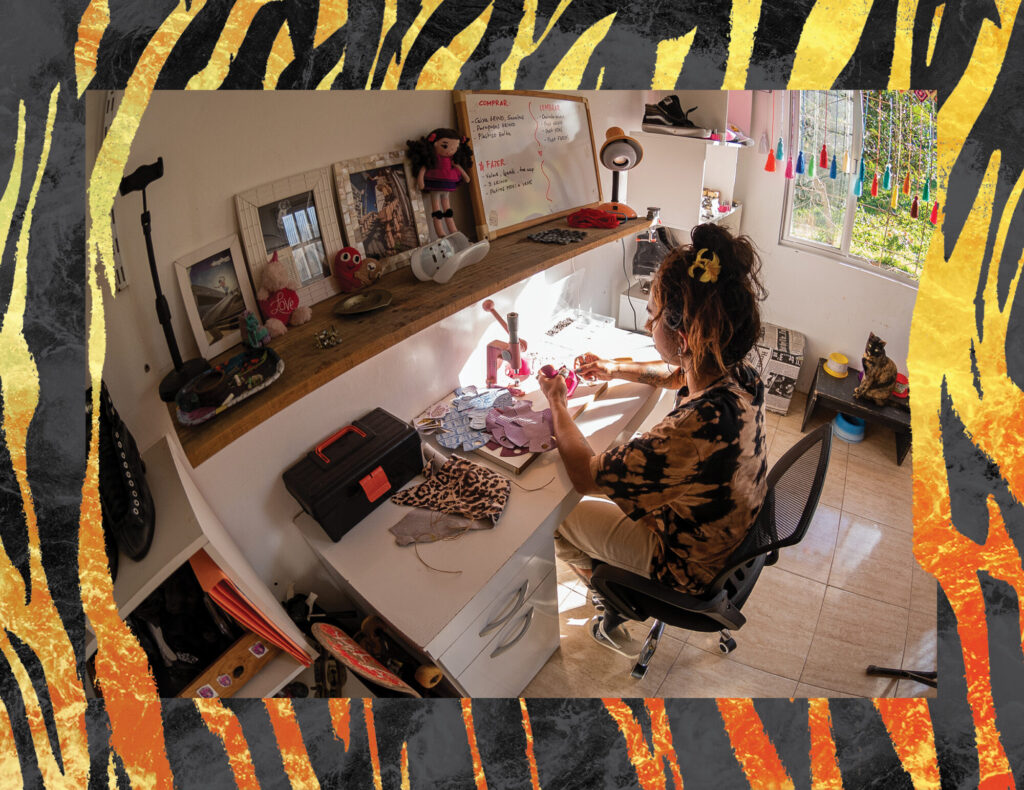
When I saw you skate at the stair spot in Paris, I was a bit scared because I’ve seen some nasty fails on that spot and you just did it first try without any hesitation! How do you go for it so fearlessly?
I think, like, it’s a state of mind. I really feel fear. I’m not fearless. I always feel fear in my life, but roller skating gives me confidence. If it’s a trick I’ve done a lot of times, I tell myself; “You can do it.” I don’t like thinking about the bad possibilities and try to think about the best results. Like, “I’m going to do this and do it well.” Even if I think that I wouldn’t be able to do that, I try to make myself believe that I can. The best thing you can do for yourself is not to let the fear win and block you, because when the sounds of fear in your mind are louder, they block you and don’t let you succeed. Your confidence is the voice that wins between the fear and the negativity. You got to be in a quiet moment with yourself and listen to your body and mind, feel the motions, let them come and let them go, and then just relieve yourself and go for it.
Yeah, when you fell from that handrail, I asked you if you want to take a break and you said no, I don’t want to give it time and think about the negative things. And then you just went for it again with full speed!
I think you got to think, but fast, and not let the thoughts come in. Be kind to yourself too, you know? Whenever I think that I’m not feeling it, I don’t do it. I don’t want to go against my body and my mind. I have to know myself and to know when I’m ready, when I’m in the mood, so everything goes the way I want. Even though it’s not going to be the way you want, because it’s not always like that.
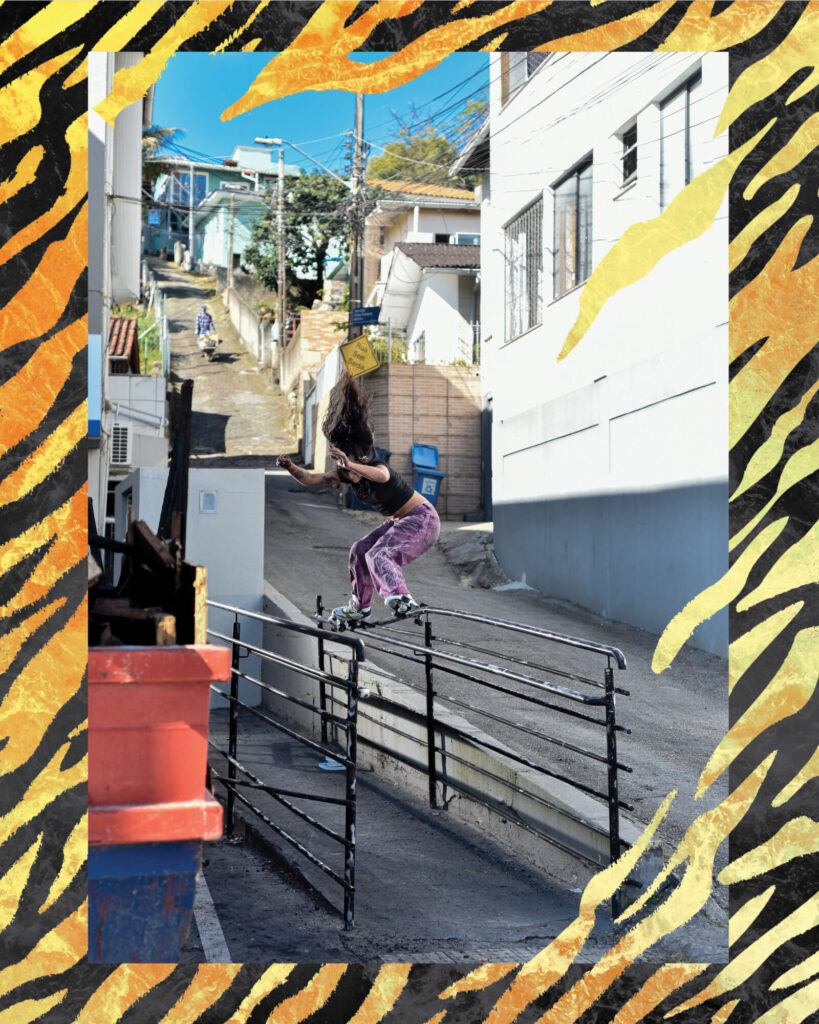
Photo: Alexsander Nicolau
I remember you called your mom right after you did your trick. How is your relationship with your parents?
They’ve always supported me in my journey. My mom used to go to competitions and events in Colombia, traveling with me, cheering me up, and she has to be one of my biggest inspirations. I’ve been through rough times and they had to deal with all of that too, so when I found roller skating, I just wanted to make them proud of me. To make them happy.
What is your skating style like over the years?
I started skating in the miniramp and then I started street skating because of the lack of skateparks. Then when I started traveling, I started trying new ramps, bowls, but I’ve always liked big stuff like big ramps or big gaps. If I see a big gap, I want to do it. Lately, I’ve been going back to more technical stuff. I used to always do big things with basic tricks, and I’m trying to get more creative and technical, too, so I think my style is not defined yet, it’s always changing.
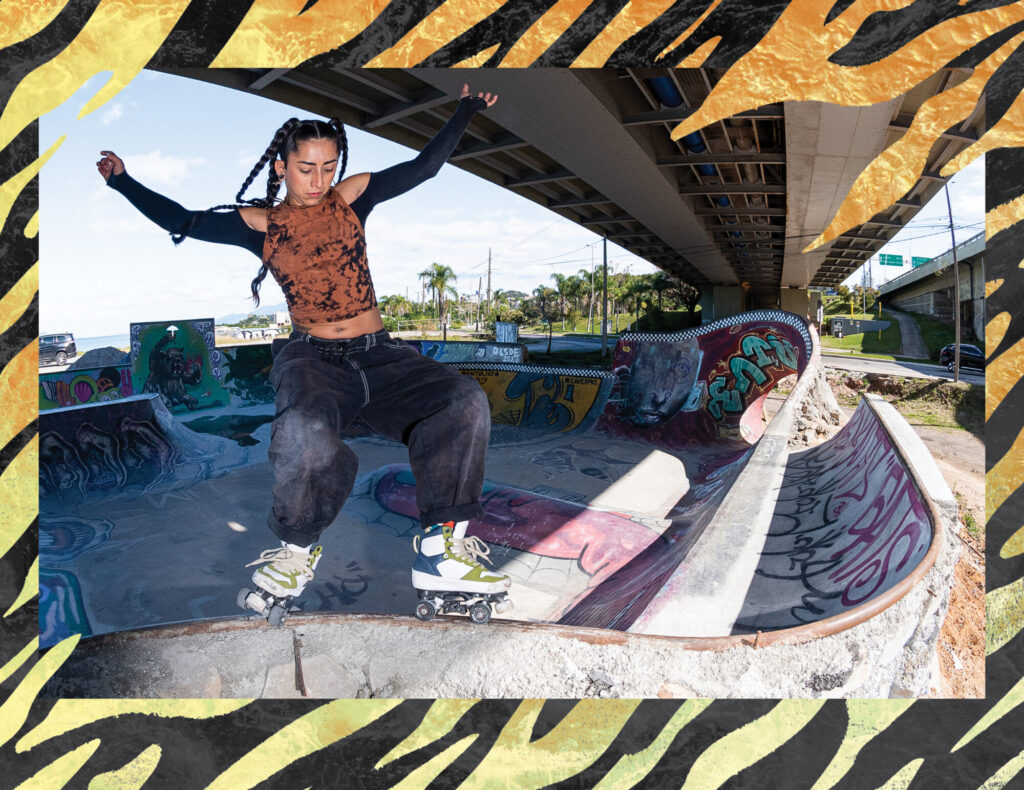
Photo: Alexsander Nicolau
What’s something people don’t know about you and your journey?
We are in an era where people think they know everything about someone just because you see their social media, because of the things you post. And that’s something that really makes me uncomfortable, like I don’t feel right about people thinking that way because we don’t know each other. Social media is what you want the others to see and that’s not bad because we are vulnerable. I think one of the things that people really don’t know about me is my rough past. I had a great childhood in my town in a good environment and then when I started my university, I went through really difficult times with my relationships. So, during those times, I had to face a lot of things. Psychological and health issues. For two years, every month, I was in the hospital for one or two weeks, spending Christmas and a lot of other special days there. There were a lot of situations I could not handle and I don’t think anyone knew what I was going through at that time. I lived all of that by myself. No one knows what’s really happening in your life to judge anyone.
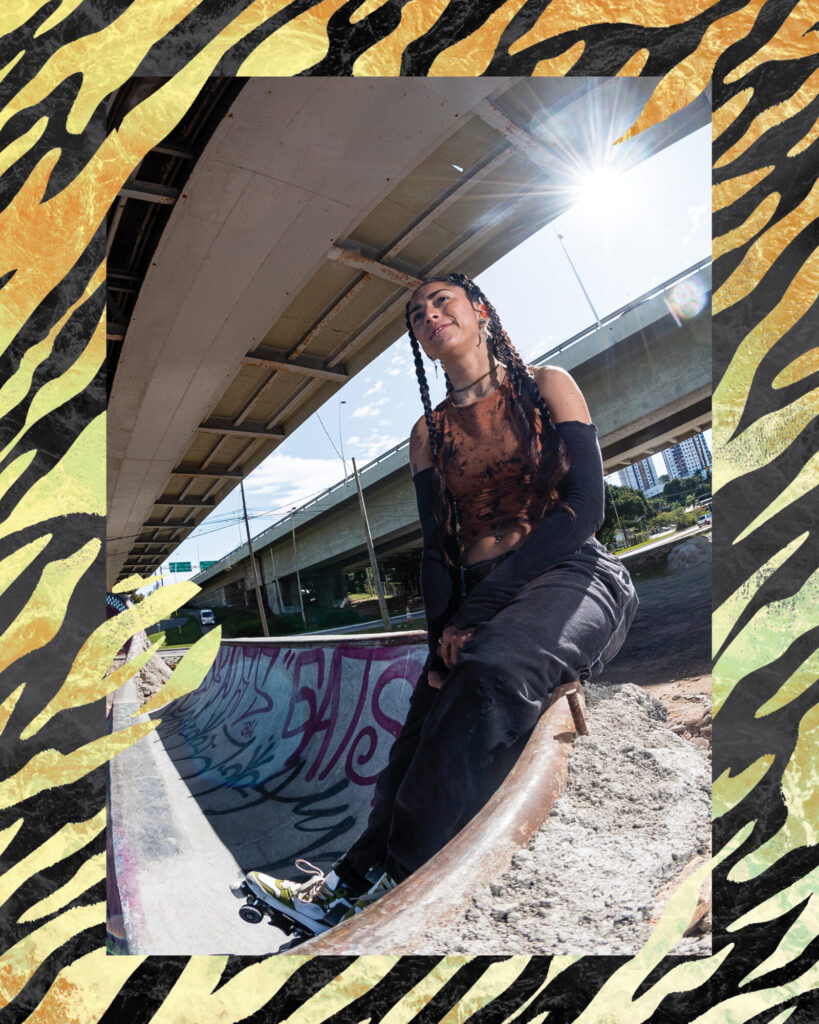
People just judge looking at social media but there’s so much happening behind every person.
Yes, that’s why I’m very sensitive and careful with everyone. I treat everyone with a lot of love and respect because I know that no one knows anything about you. So, you have to have empathy for everyone. We are all vulnerable and you can’t judge people by what you see and what we think we know. That’s why you’ve got to have more empathy and respect for each one’s history and lives. Even if I have the courage to skate big spots, that’s because I needed to prove to myself that I can overcome this the same way I overcame all the hard things that happened in my life. I’m so proud, Esh. I have no regrets about my past. I don’t talk about it, but I’m so grateful that everything happened because it made me the person I am today. In the past, I had to go to rehab and therapy and what I’m most proud of is I could overcome all that without any medication only with the power of my mind, leaving the places that were toxic for me. This is why I moved to Brazil to live a new life, and it changed everything. I left my old self and I was reborn.
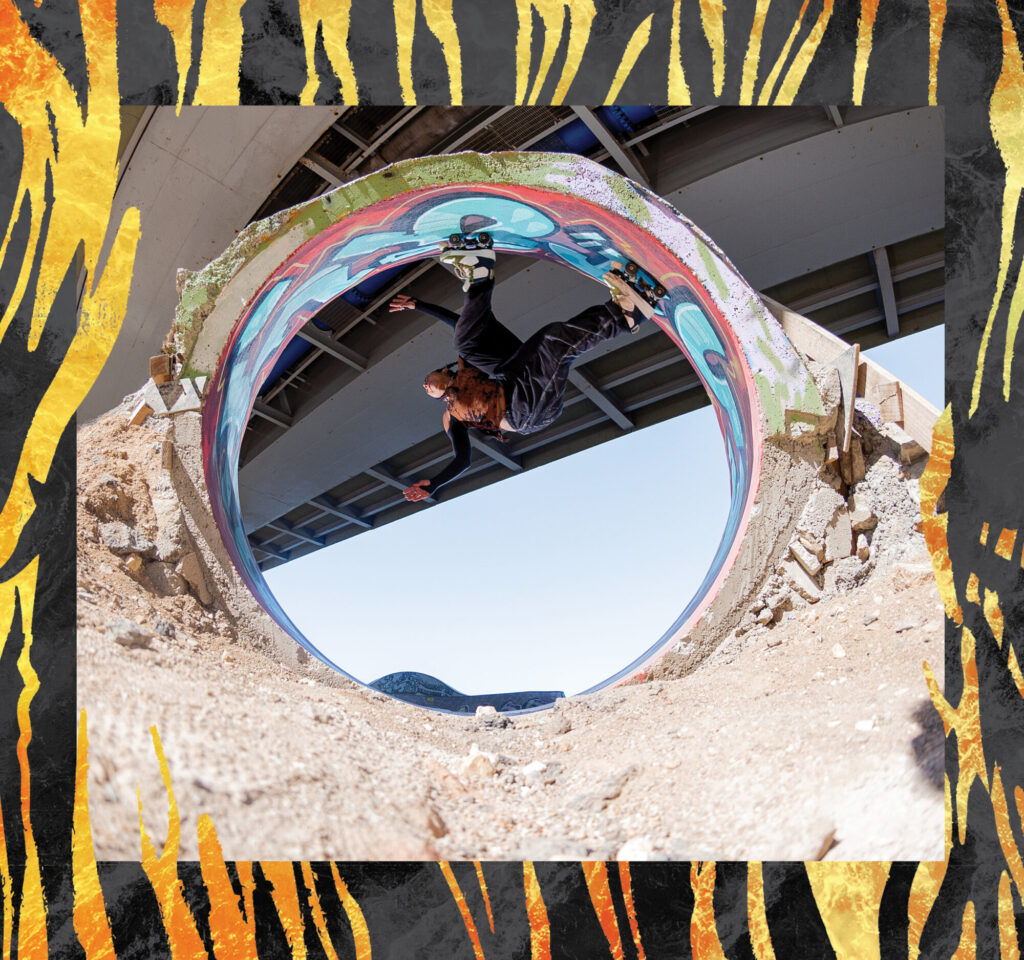
Photo: Alexsander Nicolau
You’re such a strong person, Manu. The first time I saw you skate I could only think of one thing. She’s like a tiger. Not only me but anyone who watches you skate gets empowered.
Roller skating empowers me a lot and I want to pass that down to others too, because not only roller skating but whatever you do in life, if you trust in yourself, you can be a tigress.
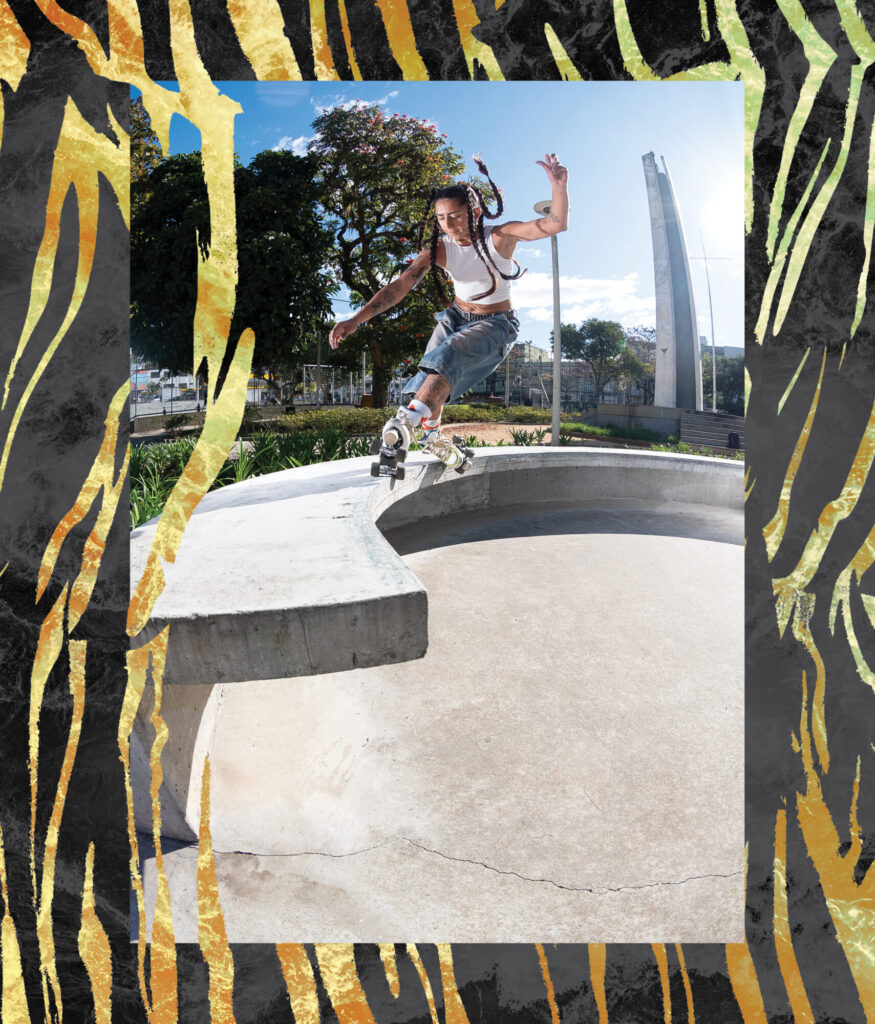
Photo: Alexsander Nicolau
What are your most meaningful connections in the skate world?
I think it would be the Paris trip with all the Lazo girls. The whole trip felt like a daydream. I’ve been on trips with friends but that would be the first trip in my life that I did with a group like you guys. With that energy and soul and how we were so in sync. We didn’t even know each other; we just met, but the energy we shared felt like I was in paradise. We didn’t even need to talk but I could feel the good energy of all the girls and the guys that were filming and taking care of us. I always dreamed about traveling and skating with like-minded people. We were so proud of each other and we wanted the best for each other and we were so supportive and talking about our lives. That was so real. I would never imagine it would happen that way. When you connect with someone without even knowing them. I could feel it in my body; my hair was standing every time we talked about something. I could feel like all our energy and all our power we had, we gave to the others. It was not my power going down the stairs. It was the power of all the girls put together, down the stairs. I didn’t even believe that I would do that, but everyone down there waiting for me and cheering for me made me so motivated to just go for it. That was when I felt the most empowered to face something that I thought I wouldn’t do. I’ve never met you again but I feel like I know you so well after that and even with the other girls.
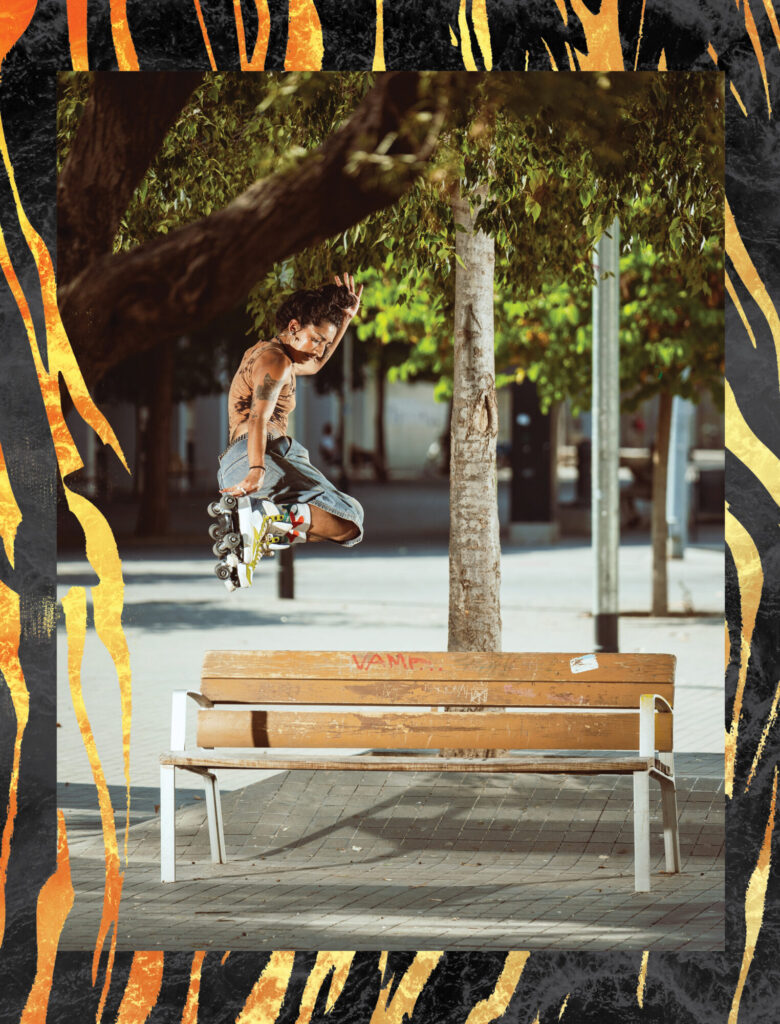
Photo: Roger Ferrero
I feel the same and that’s why it’s important to appreciate the community. At least the ones who are truly in it for the love of it. I know that you’ve done a lot of things for the community to grow and still continue to. How has the community given back to you?
If I didn’t share my love for skating with anyone, I would feel empty. I need to take this to other people for them to find themselves. Everyone inspires and motivates me in different ways. Also, when we film a video part, post on social media or give lessons, then we see people trying the same thing, it feels good. All those things make what I do matter. I know we’re leaving something and people are receiving it. It’s like planting a seed and watching it grow like a tree. I want to do all it takes to empower the community and empower more women.
What does skating mean to you now vs when you started?
When I started it was more like a hobby to keep myself busy and now skating for me is: my life, my job, my hobby, my joy, my son, my daughter, my Jesus.
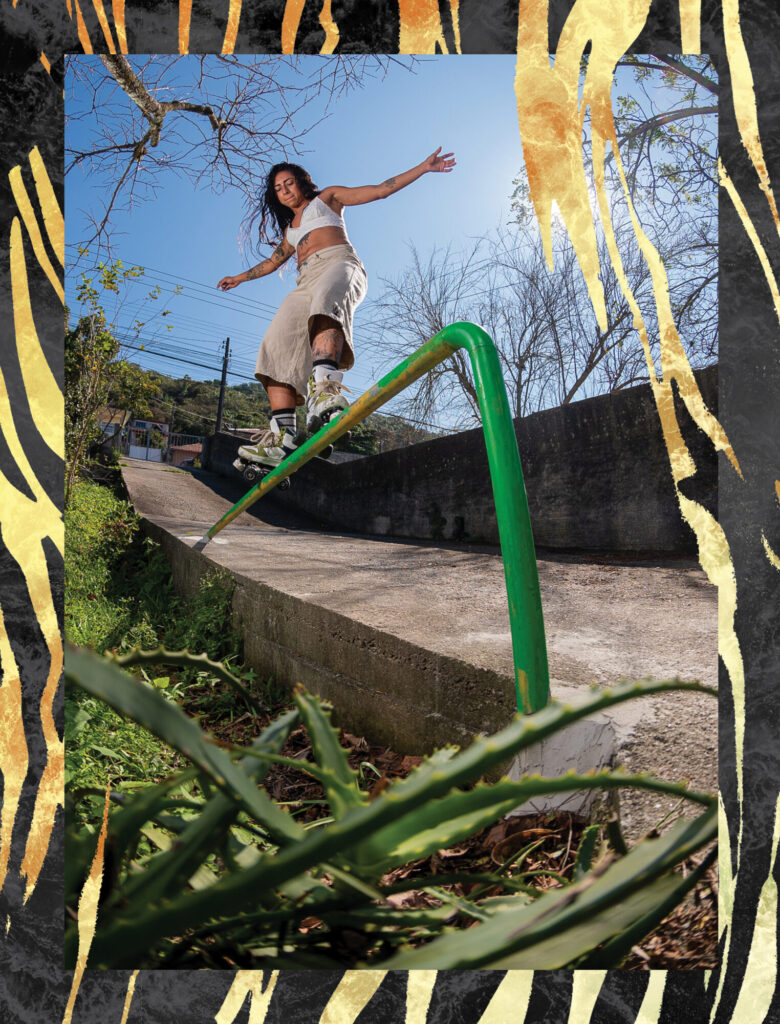
Photo: Alexsander Nicolau
What is the future of Manu? Where do you see yourself going from here?
I never thought I would be working for skating or being a professional skater. It’s just something that came. At this point, I want to be learning, coaching and spreading the culture not as a sport but as a lifestyle. Taking it to new places where people don’t have access. In Colombia and Brazil, many teenagers face serious challenges and I would like to help them get into the sport which could change lives. My brand also aims to help empower women to do community projects and to support their shop within my brand. I want to keep doing projects to help me connect with more and more people each time. I don’t think that much into the future but I want to be able to grow my brand to take it to places which really need the support.
